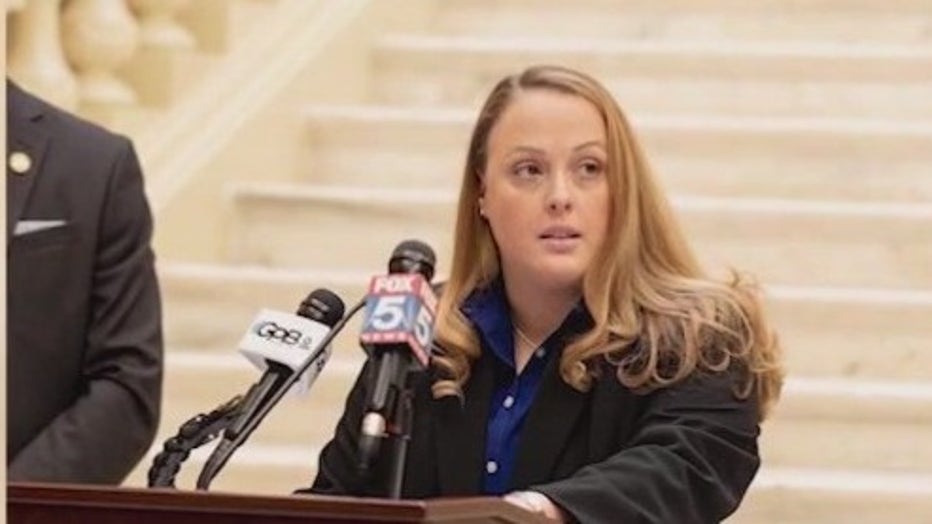Meet the namesake of new Georgia law giving mental health benefits to first responders
New law gives mental health benefits to first responders
It's called the "Ashley Wilson Act" after the Gwinnett County Police sergeant who advocated for it. First responders will get $3000 cash for the first 90 days to seek treatment. If, after 90 days, they still need treatment, they'll be eligible for a 3-year supplemental salary benefit.
ATLANTA - A new state law goes into effect July 1 that will help first responders who often witness traumatic events. It's called the "Ashley Wilson Act" after the Gwinnett County Police sergeant who advocated for it.
Sgt. Wilson suffered PTSD after seeing a fellow officer die in the line of duty.
"The trauma of watching someone die in front of you physically changes your brain," said Sgt. Wilson.
In October 2018, Gwinnett County Police responded to a suspicious vehicle call. Officer Antwan Toney was first on scene. He barely made it out of his car when he was shot 6 times.
Sgt. Wilson stayed with him, rendering aid and giving him CPR. Officer Toney died from his injuries.
"I had nightmares. I had flashbacks," said Sgt. Wilson.

NEW GEORGIA LAWS GO INTO EFFECT JULY 1
Sgt. Wilson says the PTSD she suffered was debilitating. She even considered suicide. She says thanks to her family and her department, she got the mental health treatment she needed and to get back on the job. But the treatment was expensive. That's when she started pushing for help for her fellow first responders.
Now there is a new law which will provide mental health benefits for first responders.
"They'll get $3000 cash for the first 90 days to seek treatment. If, after 90 days, they still need treatment, they'll be eligible for a 3-year supplemental salary benefit," said State Rep. Devan Seabaugh, who sponsored the bill.
State Rep. Seabaugh knows how important this is. He was a paramedic for 40 years.
"I think it will go a long way to keep our public safety work force mentally stable and healthy and able to continue working in the profession they truly love," said Rep. Seabaugh.
"It's going to save lives, and it's going to change the culture of how we in the first responder community discuss Post Traumatic Stress Disorder and how we in the community as a whole look at mental health care," said Sgt. Wilson.
Sgt. Wilson says this law is the first of its kind in the country.
"We are changing the way that first responders get care, not just in Georgia but paving a path for other states to follow," said Sgt. Wilson.

